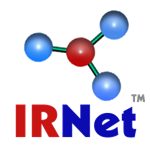- 1. Biomass-to-Energy Processes
- 2. Biofuels Production and Optimization
- 3. Waste-to-Energy Technologies
- 4. Photovoltaic Technology Conversion
- 5. Advanced Photovoltaic Materials
- 6. Solar Cell Efficiency Enhancement
- 7. Novel Photovoltaic Device Architectures
- 8. Solar Thermal Applications
- 9. Concentrated Solar Power Systems
- 10. Solar Heating and Cooling Technologies
- 11. Thermal Energy Storage Solutions
- 12. Wind Energy Technology
- 13. Wind Turbine Design and Optimization
- 14. Wind Farm Layout Planning
- 15. Offshore Wind Energy Developments
ICATEEE-2024
In today's complex society, the crucial role of thermal and electrical energy is clear, touching every aspect of our lives, from factories to transportation and daily conveniences. However, as concerns about climate change grow and environmental problems worsen, the need to find other energy sources to meet daily needs while being kinder to the planet increases. For centuries, traditional non-renewable sources such as fossil fuels and nuclear energy have underpinned global energy infrastructure, providing the power necessary to fuel economic growth and technological advancement. Again, fossil fuels, including coal, oil, and natural gas, have been the primary drivers of industrialization and urbanization, powering factories, vehicles, and homes worldwide. However, the combustion of fossil fuels releases carbon dioxide and other greenhouse gases into the atmosphere, contributing to global warming and climate change. Additionally, the extraction and processing of fossil fuels have significant environmental impacts, including habitat destruction, air and water pollution, and ecosystem degradation. Similarly, nuclear energy, derived from the fission of uranium atoms, has been hailed as a low-carbon alternative to fossil fuels. However, nuclear power plants produce radioactive waste that remains hazardous for thousands of years, posing long-term environmental and health risks. Moreover, the finite nature and detrimental environmental impacts of fossil fuels and nuclear energy necessitate a departure from reliance on these conventional paradigms. This imperative has catalyzed a growing interest in renewable energy alternatives, encompassing diverse options that harness natural processes to generate power sustainably.
However, geothermal, wind, solar, and biomass are the most prominent renewable energy sources. Meanwhile, geothermal energy harnesses heat from the Earth's core to generate electricity and provide heating and cooling for buildings. By tapping into the planet's natural heat reservoirs, geothermal power plants can produce clean, reliable energy with minimal environmental impact. Also, wind energy utilizes the kinetic energy of moving air masses to drive turbines and generate electricity. Wind farms, located on land or offshore, capture the power of the wind and convert it into usable energy, providing a renewable and emissions-free alternative to fossil fuels. Besides, solar energy, derived from the sun's radiation, is perhaps the most abundant and widely accessible renewable energy source. Furthermore, Photovoltaic (PV) cells (solar panels) convert sunlight directly into electricity, and solar thermal systems use sunlight to heat water or air for residential, commercial, and industrial applications. Solar power offers a decentralized and environmentally friendly energy solution with the potential to reduce reliance on fossil fuels and mitigate climate change significantly. Another significant energy source is Biomass energy, derived from organic materials such as wood, crop residues, and animal waste, which can be converted into biofuels, heat, and electricity through combustion, fermentation, or chemical processes. Biomass power plants generate renewable energy by burning organic matter or converting it into biogas or biofuels, providing a carbon-neutral alternative to fossil fuels. However, the sustainability of biomass energy depends on responsible forestry and agricultural practices to ensure that biomass resources are harvested and utilized in an environmentally sustainable manner.
However, each renewable energy alternative brings unique advantages and challenges, reflecting the complex interplay of technological innovation, policy frameworks, and environmental imperatives shaping the ongoing energy transition. While geothermal energy offers a reliable and emissions-free power source, geological constraints and upfront costs limit its widespread deployment. Wind energy is abundant and cost-competitive, but its intermittent nature and visual impact can challenge grid integration and community acceptance. Solar energy is clean, abundant, and versatile, but the efficiency and cost-effectiveness of solar technologies vary depending on location, weather conditions, and infrastructure investment. Biomass energy provides a renewable and carbon-neutral power source, but concerns about land use, biodiversity loss, and competition with food production highlight the need for sustainable biomass management practices. Environmental imperatives, economic opportunities, and technological advancements drive the transition to renewable energy sources. As renewable energy technologies mature and costs decline, they become increasingly competitive with conventional energy sources. Government policies and incentives, such as renewable energy targets, feed-in tariffs, and tax credits, play a crucial role in accelerating the deployment of renewable energy and driving investment in clean energy infrastructure. Additionally, advancements in energy storage, grid management, and digital technologies are enhancing the reliability and flexibility of renewable energy systems, enabling greater integration into existing energy networks. However, realizing the full potential of renewable energy requires overcoming a range of barriers and challenges, including regulatory barriers, market uncertainties, and social acceptance issues. The transition to renewable energy will require collaboration and cooperation among governments, businesses, and civil society to develop innovative solutions and address systemic barriers to adoption. By embracing renewable energy alternatives and transitioning away from fossil fuels and nuclear energy, we can create a more sustainable, resilient, and equitable future for future generations.
The International Conference on Alternative to Thermal Energy & Electrical Energy (ICATEEE-2024) is a vital platform for global stakeholders to collaborate and exchange ideas on transitioning towards sustainable energy solutions. With a focus on exploring renewable alternatives and addressing the challenges of climate change, ICATEEE-2024 aims to drive innovation and accelerate the adoption of clean energy technologies worldwide. ICATEEE-2024 invites original work from the following list of topics but is not limited to:
Important Date
| Opening of Paper Submission site : | 1st May, 2024 |
| Last Date of Paper Submission: | 15th June, 2024 |
| Notification of Acceptance/Rejection: | 01 August, 2024 |
| Camera Ready Submission: | 15 August, 2024 |
| Last Date of Registration: | 30 August, 2024 |
| Date of Conference: | 25th-26th, August 2024 |
Sponsor

Interscinece Research Network

IIMT, Bhubaneswar

Istinya Univeristy
Paper Publication
Proceeding
All papers, both invited and contributed, will be subjected to double blind review by at least 2 experts from the committees. After a careful reviewing process before the final decision and detailed presentation at the conference, all the accepted papers will be published in a proceedings, by a reputed publisher.
ICATEEE2024
Chair Person
“Dr. Jahangir Hossain received B.Sc. and M.Sc. Eng. degrees from Rajshahi University of Engineering and Technology (RUET), Bangladesh, in 2001 and 2005, respectively, and a Ph.D. degree from the University of New South Wales, Australia, all in electrical and electronic engineering.”
Dr. Md. Jahangir Hossain
General Chair
“Ilhami Colak was born in 1962 in Turkey. He received his diploma in electrical engineering from Gazi University, Turkey, in 1985. Then, he did his MSc degree in electrical engineering in the field of Speed Control of Wound Rotor Induction Machines Using Semiconductor Devices at Gazi University in 1991.”
Prof. Ilhami Colak
General Co-Chair
“Prof. Tapas Kumar Panigrahi is currently working as Professor in Electrical Engineering Department, Parala Maharaja Engineering College, Berhampur, Odisha. His research interests include power quality and protection and control in distributed generation, Micro-Grid, Energy Systems. He has nearly 28 years of teaching experience.”
Dr. Tapas Kumar Panigrahi
Program Chair
“Prof. Srikanta Patnaik is the Founder, Director and Professor of Information Management at Interscience Institute of Management & Technology, Bhubaneswar. This year, he has been appointed as Lecturers de la Catedra (Adjunct Faculty Member) at National University of La Plata with the UNESCO Chair Professor Dr. Francesco Vigliarolo for the UNESCO Programme on "Economic Systems and Human Rights".”
Dr. Srikanta Patnaik
Publication Chair
“Dr. Soumya Ranjan Das is currently with the Department of Electrical Engineering, Parala Maharaja Engineering College, Berhampur. He has authored several research articles in international journals and conferences, and one textbook with Katsons publication.”
Dr. Soumya Ranjan Das
Program Co-Chair
“Dr. Dillip Kumar Mishra received his Ph.D. in electrical engineering from the University of Technology Sydney, Australia. Prior to that, he completed his M. Tech (Honours), Bachelor (Honours), and Diploma (Honours) in Electrical Engineering in India. ”
Dr. Dillip Kumar Mishra
Publication Co-Chair
“Dr. Prakash K. Ray is currently working as an Associate Professor in the Department of Electrical Engineering, Odisha University of Technology and Research (OUTR), Bhubaneswar, India (Formerly CET, Bhubaneswar). He completed his PhD degree from MNNIT, Allahabad, India and Post Doctoral Fellowship from Nanyang Technological University (NTU), Singapore.”
Dr. Prakash Kumar Ray
Technical Chair
“Dr. Asit Mohanty (Senior Member, IEEE) was graduated from NIT Durgapur. He is presently on a temporary absence from his position as the Principal of MIET, Bhubaneswar. He has been affiliated with the National Energy University in Malaysia since July 2023. He possesses a substantial four-year research background from MNNIT Allahabad, along with almost two decades of expertise in the field of teaching and research.”
Dr. Asit Mohanty
Finance Chair